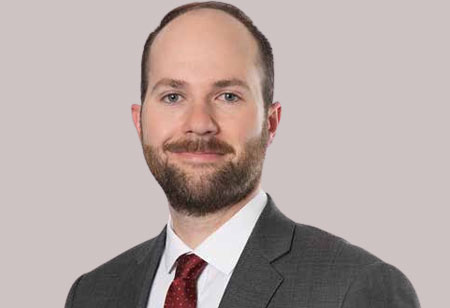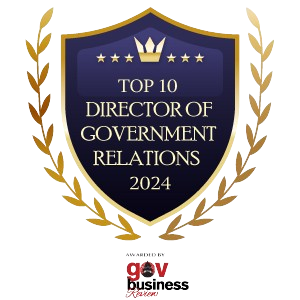Phillip Fordham is a Director of Government Relations for Celanese Corporation where he represents the company of many key regulatory and legislative topics. Prior to joining Celanese, he worked on a successful congressional campaign, on Capitol Hill, and for other Fortune 500 companies. He has a bachelor’s degree from Georgia State University, and an MBA from the University of Maryland.
When I reflect on my professional journey, it’s clear that a series of key experiences and opportunities led me to where I am today, as Director of Government Relations at Celanese Corporation. My career began back in 2013, working for then-State Senator Buddy Carter of Georgia. Towards the end of my internship, I made a bold move that would shape my trajectory—I walked into his office and made my case to join his Congressional campaign. This decision that helped shape my career was driven by the knowledge that U.S. Rep. Jack Kingston was vacating his seat to run for Senate, and Buddy Carter was preparing to run for Congress.
I soon found myself sitting across from the campaign manager, someone who became both a mentor and a close friend. Campaign work is not for the faint of heart. The days were long, the nights even longer, and there were always unexpected challenges—like the infamous dog incident. But looking back, that campaign was one of the most formative experiences of my life. Without it, I wouldn’t have built the professional foundation that allowed me to succeed in Washington, D.C., where I ultimately landed after Buddy Carter won his seat. Working in his Congressional office was an invaluable opportunity to build relationships and observe what makes for effective government relations professionals.
Over time, I realized I had a growing passion for the manufacturing industry. I was drawn to how integral this sector is to everyday life. Manufacturing makes products possible that people rely on daily, from car parts and toys to medical devices and even the coatings on the walls of your home. Since then, I’ve had the privilege of working for three different manufacturing companies. Today, at Celanese, I manage a diverse portfolio, engaging with stakeholders at every level to ensure that our ability to operate and innovate is protected.
The innovations happening in recycling, carbon capture, and green technologies are changing the landscape for many industries.
Being in this industry during a time of rapid technological and environmental change has been especially fascinating. Since I joined the manufacturing sector in 2016, I’ve seen a significant shift toward more sustainable processes. This is not just a win for the environment, but also for businesses and consumers alike. The innovations happening in recycling, carbon capture, and green technologies are changing the landscape for many industries. Without the chemical industry, products like semiconductors, batteries, and electric vehicles wouldn’t be possible. The challenge is finding a balance between innovation and regulation, and I believe the government has a crucial role to play in fostering that balance.
Looking ahead, the next decade will bring both challenges and opportunities for chemical manufacturing. One of the biggest hurdles we face is the sheer volume of policies that could impact our industry at every level—local, state, federal, and international. Given that 96% of manufactured goods rely on the business of chemistry, a single policy can have a ripple effect throughout the entire supply chain. Whether it’s a rail strike, drone legislation, or even truck weight limits on highways, every day brings new challenges. We don’t have unlimited resources, but we do have a strategy—engage early, engage often, and collaborate with other industries that depend on our products, like automotive, electronics, and construction. The more we can bring different stakeholders into the conversation, the better positioned we are to make a positive impact.
At Celanese, we rely on a range of tools to engage with government officials, but I’ve found that our most powerful resource is our employees. There’s nothing quite like taking a Member of Congress to one of our facilities, away from the distractions of Washington, D.C., to show them firsthand the work we do and the products we make. Over the past few weeks, I had the opportunity to join Celanese employees on three site visits with Members of Congress. These visits allowed us to educate lawmakers from different professional backgrounds—a former sheriff, a dentist, and a former congressional staffer—each of whom left with a better understanding of our industry. It’s these personal connections that lawmakers carry with them when they’re back in D.C., advocating for policies that impact us.
For anyone looking to advocate for their own business or industry, my advice is simple: Don’t wait to engage. The most effective advocates I’ve met are those who have been at it for years, if not decades. Advocacy isn’t a natural skill for everyone, and that’s okay—it’s certainly wouldn’t be a natural fit for me in a manufacturing setting. But the more you engage, the better you become. Keep up with the news, stay informed about the policies affecting your industry, and take opportunities to step outside your defined role. Whether it’s serving on a trade association committee or simply sharing relevant articles with your colleagues, every little bit helps.
In government relations, it often feels like you need eyes and ears everywhere, and everyone has a role to play.




